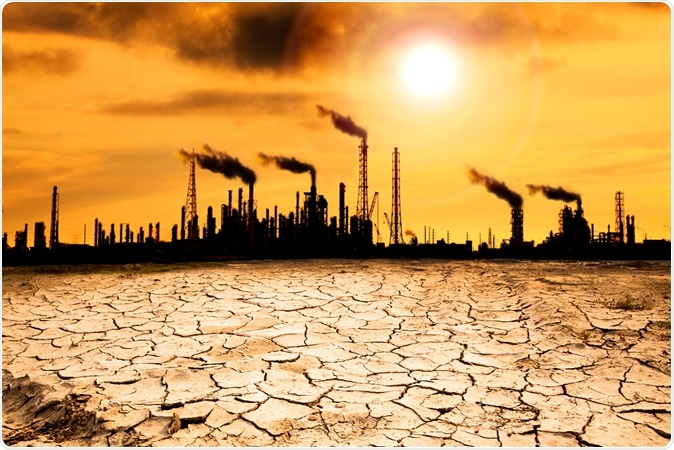According to researchers at the Harvard T.H. Chan School of Public Health, if the present rates of carbon dioxide emissions do not stop, people in around 18 countries worldwide may face a loss of around 5% of the protein they obtain from their diet by 2015. This is due to the reduction in the nutrient values of crops such as rice, wheat and other staples. This would put an additional 150 million people at risk of dietary protein deficiency. This is the first study that actually quantifies the actual dietary health risk posed by greenhouse gas emissions.

Image Credit: Tom Wang / Shutterstock
The study was published yesterday in Environmental Health Perspectives. The study is entitled, “Estimated Effects of Future Atmospheric CO2 Concentrations on Protein Intake and the Risk of Protein Deficiency by Country and Region,” by authors Danielle E. Medek, Joel Schwartz, and Samuel S. Myers. This study was funded by the Bill & Melinda Gates Foundation and by the Winslow Foundation.
Samuel Myers, senior research scientist in the Department of Environmental Health said that this would serve as a warning to the countries at risk to start working towards monitoring and controlling their emissions as well as improving human nutritional sufficiency and adequacy. Study authors explain that around 76% of the world population get most of their dietary proteins from plant foods such as rice and wheat despite the fact that these are not high sources of protein in diet. For this study they researchers collected the data from the experiments in which crops were exposed to high concentrations of CO2. They then combined these results with the global dietary information from the United Nations and also looked at the inequality in incomes.
Results they found were numbers that no one had previously suspected. They saw that when carbon dioxide levels rose the protein contents of various crops decreased significantly.
- Rice by 7.6%
- Wheat by 7.8%
- Barley by 14.1%
- Potatoes by 6.4%
When they looked at present protein deficient states globally they found that Sub Saharan Africa, South East Asian countries such as India were already under a heavy burden of protein energy malnutrition with millions suffering lack of protein in diet. According to this study estimates, India may lose 5.3% of protein from a standard diet which has a staple of rice or wheat. This could put 53 million Indians at a fresh risk of protein deficiency in diet. Most vulnerable countries include India, Bangladesh, Turkey, Egypt, Iran and Iraq say the researchers.
Another companion paper to this study entitled, “Potential rise in iron deficiency due to future anthropogenic carbon dioxide emissions,” authored by M. R. Smith, C. D. Golden, and S. S. Myers was also published in GeoHealth yesterday. That paper showed that carbon dioxide also reduces the iron content of food crops. This would intensify the iron deficiency in diet worldwide which is already a huge problem. Iron deficiency affects 354 million children under 5 and 1.06 billion women in their childbearing age. The figures are worst in South Asia and North Africa. Carbon dioxide could reduce iron content from plant foods by 3.8% on an average finds this companion study that was co-authored by Myers. Myers was also part of an earlier 2015 study that showed that carbon dioxide emissions could cause zinc deficiencies in nearly 200 million people by reducing zinc content in food.
Taking these studies into perspective Myers explained that there needs to be national campaigns and strategies not only to combat these deficiencies but also reduce the carbon dioxide emissions. Focus could also be on diversifying diets to cut down on dependence on one form of crop and also on breeding crops which are less sensitive to the effects of rising carbon dioxide.
Greenhouse Gases
According to the World Health Organization (WHO), greenhouse gas emissions is considered to be the largest threat to human health and wellbeing. The United Nations system thus is focussing on measurement and reduction of the greenhouse gas emissions.
Gases that trap the heat within the earth’s atmosphere are called the greenhouse gases. These contribute to global warming that seriously alters the ecosystems. These include carbon dioxide, methane, nitrous oxide and fluorinated gases. Carbon dioxide is the most notable of them all and comes from burning of fossil fuels such as oils, natural gases and coal and also from burning solid wastes, woods etc. It is naturally removed by plants. As the plant covers are removed worldwide, the gas contents continue to rise. Greenhouse gas concentrations are measured in parts per million, parts per billion, and even parts per trillion.
References